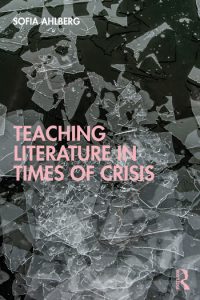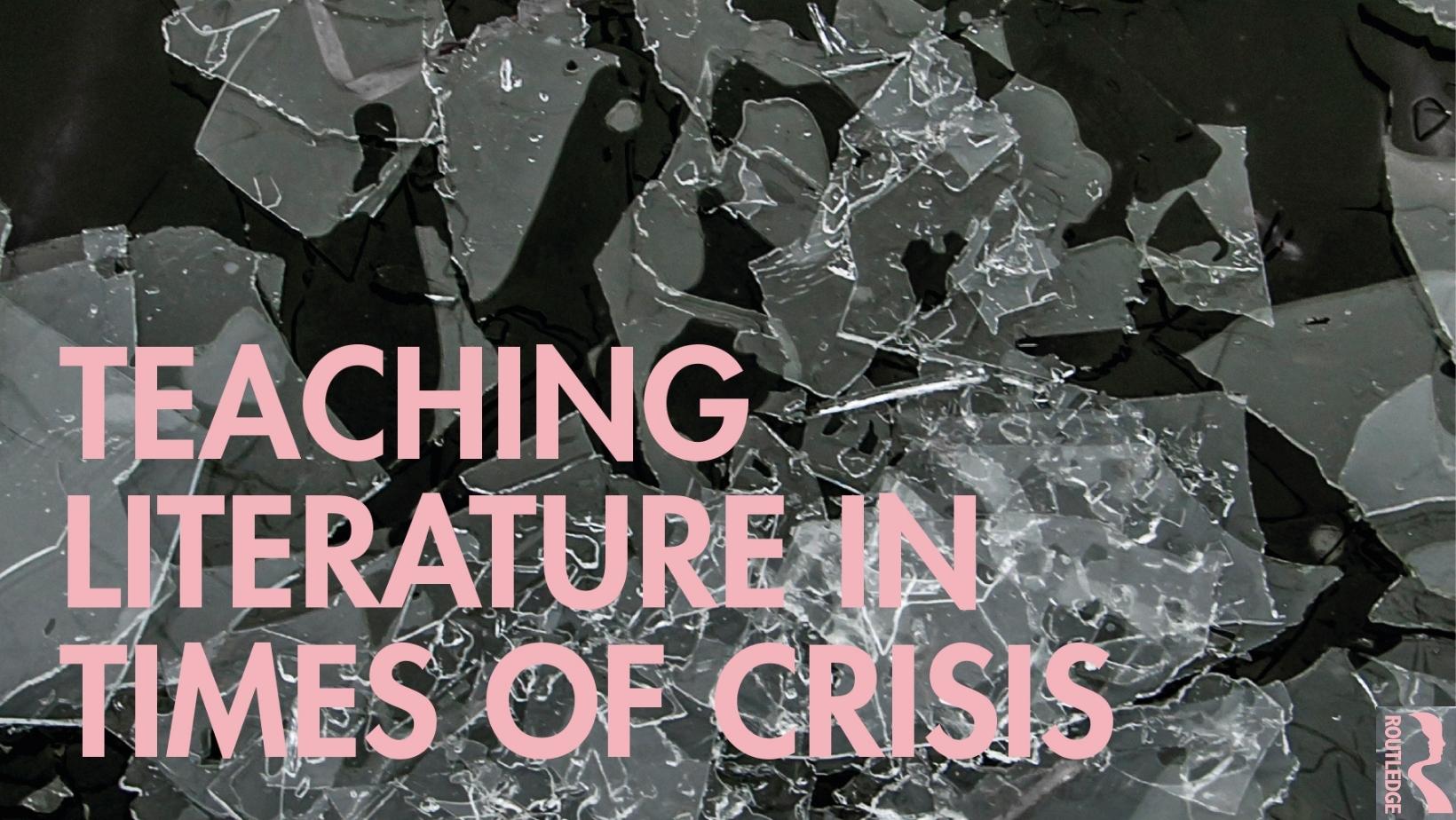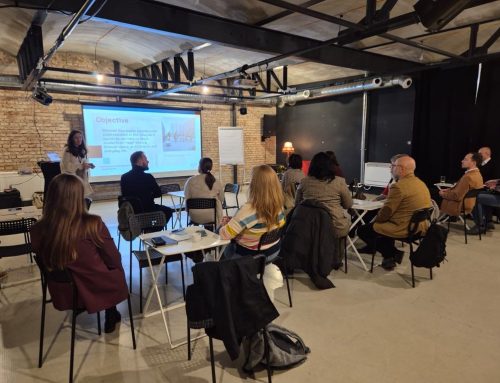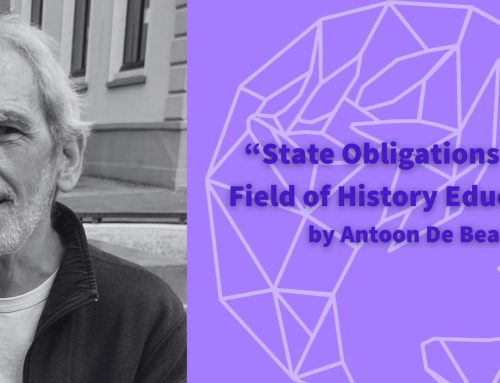“Whatever overwhelming change we might be going through needs to be part of the classroom. We used to think of the classroom as a space that was somehow removed from the world: I think that’s a losing game.”
[su_box title=” ” style=”bubbles” box_color=”#ffffff” title_color=”#000000″ radius=”5″] Teaching Literature in Times of Crisis looks at the range of different crises currently affecting students and at the way teachers can respond to new challenges which require immediate action and a renewed approach. Sofia Ahlberg shared with EuroClio her reflections on these unprecedented times, her tips on effective teaching practices and her personal take on history as something that is lived and shaped by people each and every day. [/su_box]
Let’s make it clear, Sofia Ahlberg’s teaching practices were not disrupted by the pandemic. Before teaching at Uppsala University, she had worked for over twenty years in Australia, where online teaching is very common.
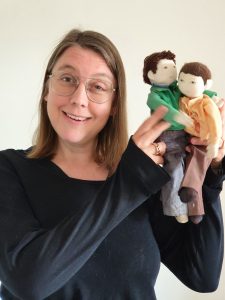
As a result of this, she did not start writing this book because of the pandemic, on the contrary, she had already started a couple of months before the pandemic hit. “I noticed that my teacher training students were responding to their education in a different way from what I was used to and it might have been because of the activism of Greta in Sweden. Obviously, she had a huge impact on my students. But all of a sudden they started asking the kinds of questions that had less to do with literary studies as such and more to do with activism, relevance, societal problems, climate change, inequality. It became apparent to me that I had to change the way I was teaching and I took it upon myself to write this book in order to show other teachers how to make reading literature relevant in a world of change.”
The book is certainly intended for teachers: secondary school and university teachers as well as teacher training students. “The reason why my focus is so much on teacher training education is because they need to have the skills. Crisis is not something that’s going to go away, and we need to equip our teacher trainees with these kinds of skills so that they can engage and inspire their students.”
Learning how to engage with a world of change
Despite – but at the same time in line with – the title of her work, Sofia speaks of a world of change and not of one undergoing a catastrophe by reclaiming the original meaning of the word ‘crisis’: “In ancient Greek the word has a different meaning to what we think of it now. Now, we think of crisis as synonymous with disaster, calamity, something that is totally beyond our control. But actually, if you look at the original ancient Greek word ‘κρίσις’, it means something different: it generally refers to “a decisive stage where change must occur”, and it could also mean a turning point. But either way, it seemed to me that it was something that our students and ourselves as human beings could engage with rather than just be passive.”
Sofia goes on explaining her personal approach to crisis, and the perspective she embraces in her book: “Crisis is an ongoing process, crisis is not an interruption of normality. If we think about the pandemic now, I often hear amongst my colleagues and friends, “soon we will get back to normality” – but what if we could ask ourselves instead “what kind of new post-pandemic world do we want to make?”
Sofia has noticed the negative connotations that not only the word ‘crisis’ has, but also the bad experience that is associated with it, especially in the way that people face it. This is transferable and applicable to the classroom environment. “I’ve noticed that the way we talk about crises or historical events that are tragic is often in a way that leaves our students with a sense of deep grief, actually, and anxiety, and anger and depression.” For this reason, she highlights the role and the responsibility that teachers have in this regard: “rather than making students passive, we need to give them the skills to become actors. Rather than be subject to crisis, we can engage with it.”
Empowering students with local roles to play
When asked about the role of literature, she immediately explains that for her neither literature nor the act of reading represent an escape from reality. “The literature we engage with is always a response to crisis. Crisis affects us as individuals, in very minute detailed ways, but it also affects the historical events, the evolution of our societies, of ourselves as human beings. Crisis seems so difficult to comprehend, but literature has so much to teach us about the scale. It’s about that narrative rhythm, it’s about overcoming that problem, and having a resolution.” And that is exactly where the power of literature lies: “Literature is a safe space, a place where you can respond to very serious and often quite overwhelming events that most of the times are fictional – but the way you respond to them as a reader is something that you can then apply to real life events – the way you learn to how to respond to characters for instance, how to respond to plot, to narrative, is something you can apply to real life.”
Sofia depicts literature as something that can empower students as global citizens with local roles to play, where reading practices correspond to transferable skills. Readers are not just readers of a book, but readers of the world: “the moment when we read and reflect, we respond, that’s when we’re turning our students into historical actors rather than just simply being subject to historical events: we are showing that even in a very small way they can be active participants. Seeing something happening on the street and being able to read and judge and evaluate in an ethical way, and knowing something about how to respond to it – how to think about it, how to evaluate it – that is where literature and global events are connected. Reading is translated into some sort of behavioral change.” Books and literature can also change the course of history. “‘Uncle Tom’s Cabin’ for instance, a book about slavery that completely changed the way people thought about slavery in America at the time.”
Sofia insists on literature’s response to crisis and on the fact that teachers must engage with events and the challenges that those events may bring. “Whatever overwhelming change we might be going through needs to be part of the classroom. We used to think of the classroom as a space that was somehow removed from the world: I think that’s a losing game. For me, in the Swedish learning climate, that’s not possible. My students will get very frustrated if they can’t refer to real events, whatever they’re doing.”
Weathering the crisis together: fostering collaboration in the classroom
What are then the kinds of exercises that can help students face a world in constant change? “A lot of the exercises in the book are about participatory problem solving exercises. They include the ability to learn from others, to understand, to respect their needs, their perspectives, their actions – kind of empathetic leadership on the whole to overcome the fear of uncertainty and overcome the fear of looking stupid, of saying the wrong thing. The reading practices that I show have to do with ‘collaborative competence’. One of the first things we have to teach our students is that crisis is not something you can weather alone, you have to collaborate with others.”
Sofia is trying to achieve this by using exercises that develop participatory problem solving skills. “This means that rather than asking your student to write one essay, written for one person, I’m asking my students to write together with others, to do collaborative writing. Students are randomly put together and [with the multi-ethnic and multi-racial student cohorts that are increasingly common] this fosters that kind of collaboration that is at the heart of fighting systemic racism as well.” Another technique is using imaginative exercises that are still very much connected with reality as students can confront and respond to what is happening in the world. “The book contains reading practices that are about making an intervention, almost in an activist sense, in real-life events and thereby shaping the future. I have this exercise where we as a class discuss: ‘what do we actually want to preserve from the past? What do we need and what do we want to do differently?’ It gives the students the power to imagine themselves as being able to choose and therefore impact the future.”
When she is asked whether reading practices can help decolonize history, Sofia has no hesitation. She immediately recognizes that the attempt to decolonize history is specifically tied to language choice: “this is how it can change – through the way we refer to something. I speak of systemic racism in my book, but I’ll give you one environmental example: if we look at the various activist movements for environmentalism, we have “Greenpeace”, that was founded in 1971 – just the word “green peace” speaks volumes, it says something about people’s attitude at the time. If you compare it to “Extinction Rebellion”, which was founded in 2018, there’s an enormous difference. In the literature classroom, we are training our students to be able to detect this kind of nuance to language, to … cultural and linguistic coding. We need to be more alert to how we speak about others.”
She also provides another brilliant example, a very powerful exercise she has thought of, that she has used in the classroom with outstanding results. “I give the students a paragraph from literally anything – it could be from any text that any teacher is teaching: I ask them to use those words in the paragraph and repurpose them and turn them either into a love letter or a breakup letter. It’s really fascinating for students, they are not allowed to add other words, but they are allowed to shift them around and turn them into different messages. With this exercise, I’m showing that you can use words for a specific purpose, that you can bring another kind of intentionality to them.”
How can historians benefit from this book? How can history teachers use literature in the classroom?
The book is specifically addressing reading practices that might be particularly helpful in a literature classroom, but nonetheless relevant for history teachers as well. Sofia admits: “I want so much for history teachers to be able to benefit from reading the book. I think we have everything to gain from an interdisciplinary approach to education. My book does offer a perspective on history, but it offers a perspective on history in the making, not history in a retrospective way, but as something which still hasn’t settled yet. And it’s possible that that’s how history is taught – but I have a feeling that this can be the specific contribution of literary studies.”
[su_quote cite=”Sofia Ahlberg“] I believe that history has always been punctuated by crisis and it is the role of historians to connect the dots leading up to crisis so as to understand how to prevent the crisis from happening again. By practicing your reading skills, you can be more selective about what you take with you into the future.[/su_quote]
Sofia has also tips to share on how to use literature in the classroom. Her first recommendation is mixing genres – for example, putting in dialogue an older novel with new genres or something set in the future for history teachers to be able to bring in the perspective. “It’s not necessary to take a whole novel. For instance, bringing in just a page of sci-fi (speculative fiction). Imagine teaching the witch trials from a historical point of view, and putting that in dialogue with ‘The Handmaid’s Tale’, which is another kind of witch hunt. Magic happens.” Her second tip would be taking a historical text, but playing around with narrative voices. “I can imagine, from a historical point of view, it would be incredibly fascinating to try to insert a narrative voice even where we think there is no narrative voice.”
Sofia Ahlberg is smiling from the camera of her laptop: “What I hope and what I believe that I have shown in the book is something that’s transferable first of all. These are transferable skills that can be applied in the classroom, in any classroom – I would say.”
Written by Giulia Verdini
About the author
Sofia Ahlberg is Vice Dean at the Faculty of Languages for education and collaboration and Associate Professor at Uppsala University’s Department of English: “I grew up in African and the Middle East and lived in the Southern Hemisphere which helps me to bring a global perspective to my research interests in energy humanities, pedagogy and ecofiction. I’m convinced that literary studies has an urgent role to play in the design of alternative social frameworks. For this reason, I’m committed to classroom practices that can respond to a rapidly changing world.”
Purchase the book!
